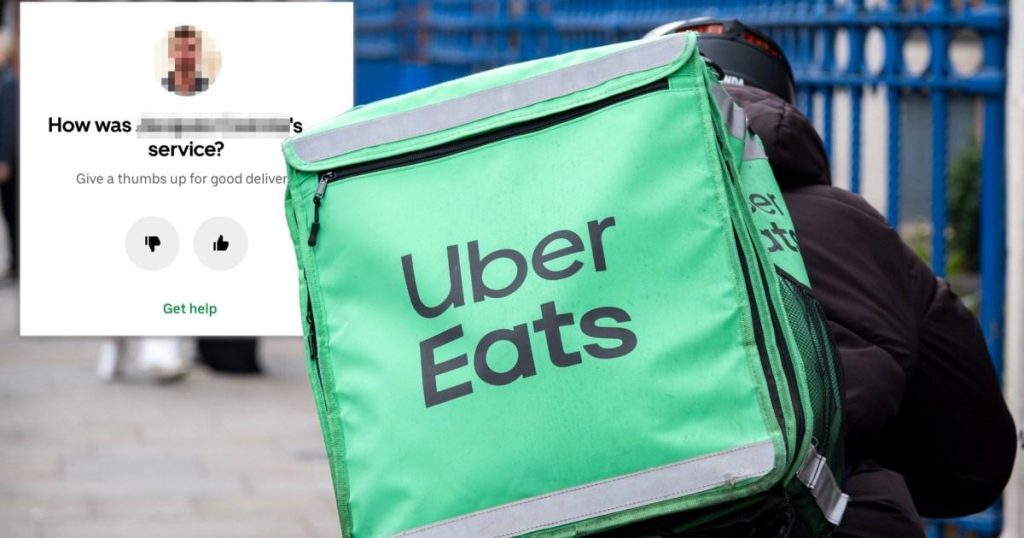The safety of women ordering food deliveries has been called into question as reports emerge of male drivers fraudulently using female accounts to pose as women deliverers. This deceptive practice has led to instances of harassment and intimidation, with women expressing fear and unease when the person arriving at their door doesn’t match the profile displayed on the app. The discrepancies often extend beyond gender, with the vehicle used by the driver also differing from the information provided, making it difficult, if not impossible, for victims to accurately report these incidents to the delivery platforms. This practice undermines the safety measures implemented by companies like Uber Eats and Deliveroo, which require drivers to verify their age, right to work, and undergo background checks. The use of fake accounts circumvents these security protocols, leaving women vulnerable to potentially dangerous situations.
The experiences shared by women highlight the distressing nature of these encounters. One woman recounted instances of drivers withholding food until she provided her phone number, stalking her on social media, and even attempting to force their way into her flat. The fear and vulnerability experienced by these women are exacerbated by the knowledge that the driver’s assumed identity makes reporting and accountability challenging. Another woman described a chilling incident where a driver, after delivering her food under a female persona, later contacted her, demonstrating that he had access to her personal information and raising concerns about the potential for further harassment. These accounts paint a disturbing picture of a system where safety measures are being circumvented, leaving women exposed to unwanted advances and potential threats.
The issue is further complicated by the existence of online groups dedicated to facilitating the rental of delivery accounts. This suggests a more organized effort to exploit the system, with individuals actively seeking to bypass the verification processes implemented by delivery platforms. The ease with which these accounts can be obtained raises questions about the effectiveness of current security measures and the responsibility of the platforms to address this vulnerability. The fact that drivers are willing to risk the potential consequences of using fraudulent accounts highlights the potential financial incentives driving this behavior and the urgent need for stricter enforcement and more robust verification methods.
While delivery companies like Uber Eats claim to have implemented various security measures, including background checks and collaboration with the Home Office for enhanced identity verification, the continued prevalence of these incidents suggests that these measures are insufficient. The reliance on algorithmic adjustments to reduce the likelihood of a specific driver being assigned to a particular customer, as reportedly done in one case, is a reactive rather than proactive approach and does not address the root cause of the problem. The ability of drivers to create and utilize fake accounts highlights a systemic flaw that needs to be urgently addressed to restore user trust and ensure the safety of both customers and legitimate drivers.
The implications of these fraudulent activities extend beyond individual instances of harassment. They erode trust in the delivery platforms and raise concerns about the overall safety of using these services. The anonymity afforded by fake accounts creates an environment where individuals can act with impunity, knowing that their actions are difficult to trace. This not only poses a risk to customers but also undermines the integrity of the platform and the safety of legitimate drivers who adhere to the rules and regulations. The need for more stringent verification processes, including potentially incorporating biometric data or real-time identity checks, is becoming increasingly apparent.
Ultimately, addressing this issue requires a multi-faceted approach. Delivery platforms must invest in more robust verification processes to prevent the creation and use of fraudulent accounts. This may involve exploring technologies like facial recognition or other biometric authentication methods to ensure that the person delivering the food is the same person registered on the account. Increased monitoring and scrutiny of account activity, coupled with stricter penalties for those found to be engaging in fraudulent practices, are also essential. Furthermore, fostering a culture of accountability and transparency, where users can easily report suspicious activity and receive prompt and effective responses, is crucial for building trust and ensuring the safety of all stakeholders. Finally, continued collaboration with law enforcement agencies to investigate and prosecute those involved in harassment and intimidation is essential to deterring such behavior and creating a safer environment for both customers and delivery drivers.


